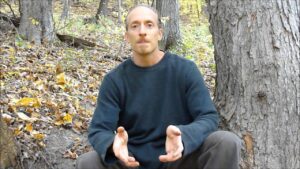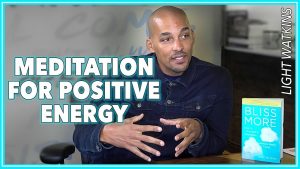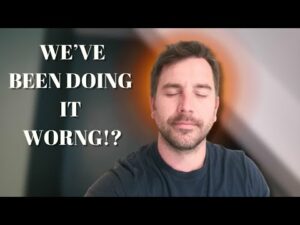The most powerful thing is a repetitive thought.
Joe Dispenza and Jay Shetty share...
Rewiring the Mind: Harnessing the Power of Conscious Thought:
Introduction:
In a captivating and thought-provoking conversation, Jay Shetty, a renowned author and host of the popular podcast “On Purpose,” discusses the profound impact of repetitive thoughts and the potential for change. Delving into the realm of consciousness and self-transformation, Shetty provides valuable insights on how repetitive thoughts shape our beliefs and behaviors, and offers strategies for reprogramming the mind for a more empowered and fulfilling life. This article explores the key takeaways from Shetty’s discourse, shedding light on the importance of conscious thought and its implications for personal growth and happiness.
Understanding the Power of Repetitive Thought:
According to Shetty, repetitive thoughts possess incredible potential. Just as the most beautiful creations in the world often emerge from an obsession with a new idea, the most dangerous thoughts are the ones that repeatedly reinforce negative beliefs about oneself. Shetty highlights that countless individuals find themselves trapped in a cycle of self-doubt, believing they are unworthy or undeserving of love. To break free from this pattern, it is essential to recognize the influence of repetitive thoughts and their role in shaping our experiences.
Consciousness: The Gateway to Change:
Shetty emphasizes the significance of becoming conscious of our unconscious thoughts. He explains that repetitive thoughts gradually solidify into beliefs, forming strong neural connections in the brain. As a result, these beliefs become automatic, driving our behavior on an unconscious level. However, Shetty highlights that accepting a thought as truth without questioning or analyzing it can perpetuate negative patterns, leading to the same choices, behaviors, and experiences.
Challenging Unconscious Beliefs:
The process of change begins by consciously confronting and questioning our unconscious beliefs. Shetty acknowledges that this can be uncomfortable, as it requires breaking away from familiar territory and stepping into the unknown. He explains that the brain instinctively seeks evidence of change in the external environment. When the external environment remains unchanged, individuals often revert to their old thought patterns, believing that the new path is ineffective. However, Shetty urges individuals to persist and remain committed to the process of change, recognizing that discomfort is an inherent part of growth.
Reprogramming the Mind:
Shetty highlights the importance of intentionally choosing new thoughts and beliefs. By consistently practicing new thought patterns, individuals can activate their prefrontal cortex—the part of the brain associated with decision-making—and gradually rewire their neural circuitry. Initially, this process may feel unfamiliar and uncertain, but with repetition, the new thoughts become more hardwired and automatic, leading to lasting change. Shetty emphasizes the significance of aligning one’s thoughts, behaviors, and emotions with the desired outcome, paving the way for a transformed and fulfilling life.
Harnessing Emotional States:
Emotions play a crucial role in the process of change. Shetty highlights that emotions are a record of past experiences, and the stronger the emotion associated with a particular event, the more deeply ingrained it becomes. He emphasizes the importance of consciously regulating emotional states, as repeated feelings of unworthiness or negativity can shape our thoughts and perpetuate a cycle of self-doubt. By actively choosing elevated emotions and rehearsing positive feelings, individuals can condition their bodies to believe in a new reality, leading to significant biological and metabolic changes.
The Power of Repetition and Intention:
Shetty underscores the significance of repetition and intention in rewiring the mind. He emphasizes that simply wishing for change is insufficient; consistent action is necessary. By repeatedly exposing the mind to positive and empowering information, individuals can reprogram their habits and beliefs. Whether through daily affirmations, focused attention, or mental rehearsal, intentionally directing thoughts and emotions toward a desired outcome can initiate profound transformation.
Conclusion:
Jay Shetty’s insights shed light on the power of conscious thought and its potential to transform our lives. By becoming aware of our repetitive thoughts, challenging unconscious beliefs, and consciously choosing new thought patterns, we can reprogram our minds for growth, happiness, and self-empowerment. Embracing discomfort and persistently practicing new ways of thinking and feeling, we can break free from the limitations of our past and create a future aligned with our deepest desires.
operating in that emergency mode for prolonged periods, it can have detrimental effects on your health and well-being. Chronic stress can lead to a variety of physical and mental health issues, including anxiety, depression, heart disease, and weakened immune function.
By practicing techniques like breathwork and meditation, you can train your body to shift out of that emergency mode and activate the relaxation response. This helps regulate your heart rate, promote a state of calm, and restore balance to your nervous system. It allows you to approach challenging situations with more clarity, focus, and resilience.
While it may be challenging to grasp the immediate benefits of these practices when faced with pressing issues, it’s essential to recognize that investing time in self-care and stress reduction techniques can have long-term positive effects on your overall well-being. It’s about finding a balance between addressing immediate concerns and taking steps to cultivate a healthier and more resilient mind and body.
Remember that your well-being is a priority, and by incorporating these practices into your daily routine, you can build emotional resilience, enhance your ability to cope with stress, and ultimately improve your quality of life.
Joe emphasizes the importance of recognizing the addictive nature of living in a state of stress and survival, as well as the need to break free from that emotional state to see possibilities and become a creator in our lives.
He mentions that changing our emotions and thoughts requires practice and that it goes against thousands of years of programming for survival. However, it is a process that can be learned and developed over time. He suggests that we have two choices when faced with challenges: to be victimized by our circumstances or to become a creator and respond from a place of love and greatness.
Joe also discusses the significance of breathwork and meditation in this process. Different breathing techniques are used to regulate brain waves, increase coherence, and shift our emotional and mental states. He explains that breathwork can help us tap into our creative life force, increase energy in the brain, and induce altered states of consciousness.
Towards the end of the conversation, Joe mentions ongoing research on random event generators, which shows that collective networks of observers can influence reality. He emphasizes the importance of community, connection, and compassion in our lives, both on a personal level and a larger scale.
Overall, the conversation highlights the transformative power of changing our thoughts, emotions, and behaviors, as well as the importance of practices such as breathwork and meditation in facilitating this change. It encourages individuals to take responsibility for their own lives and embrace their role as creators.











